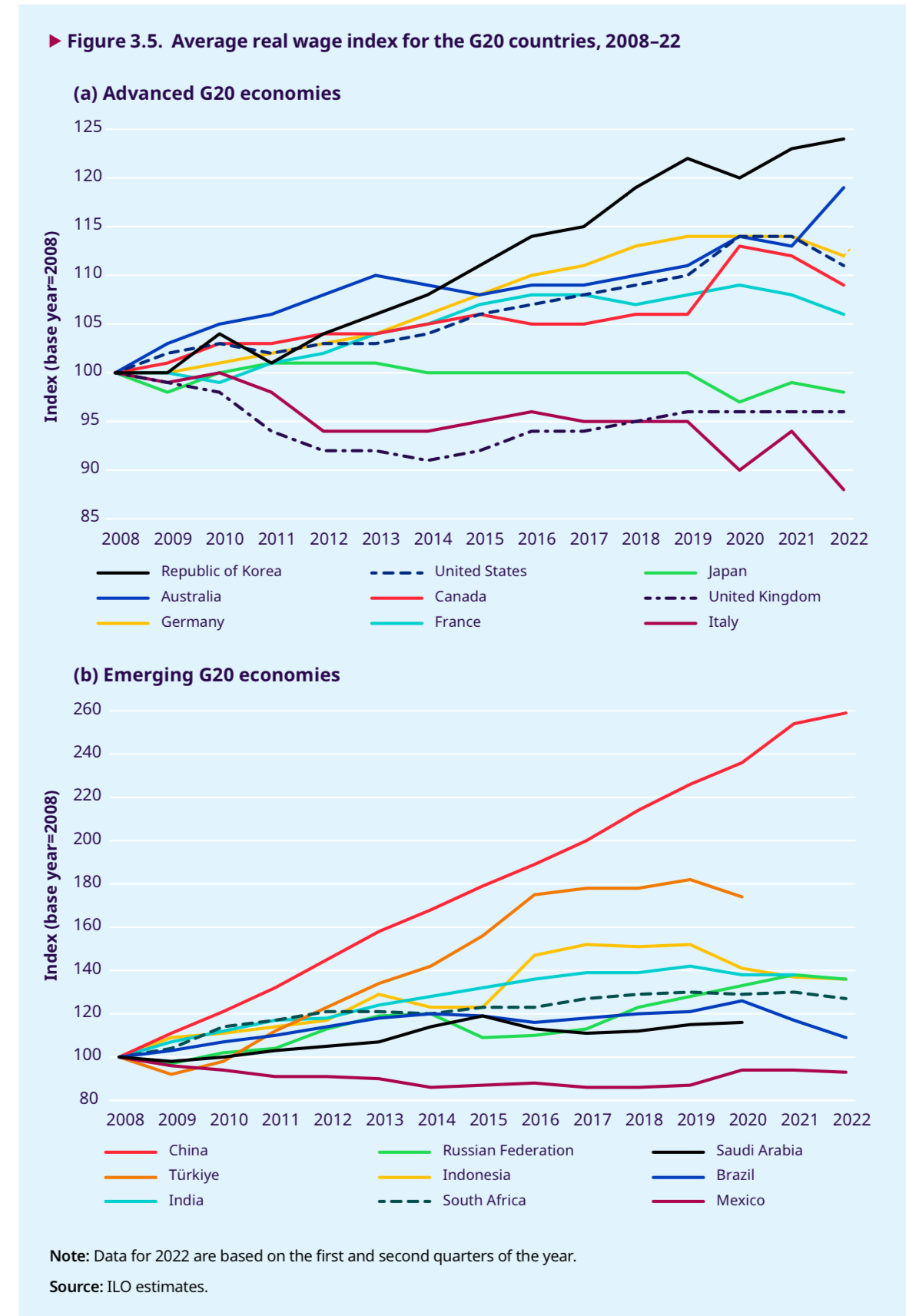Neptium
Class struggle in all its forms.
- 12 Posts
- 69 Comments

 11·8 months ago
11·8 months agoI made a comment in a Hexbear news megathread about this here. Although it’s mainly just referring to news articles.
The nature of the situation will not mirror that of Ukraine fortunately, however there are other risks involved.
I have now read 2 articles advocating for “security engagements” with the West for both Malaysia and Indonesia.
I suspect this entire facade is ultimately for this exact purpose. ASEAN has it’s faults but what the West wants to currently do is undermine ASEAN centrality (as much as they claim otherwise).
The escalation ultimately led by US-led monopoly capital, wants to break apart the long-standing neutrality and non-alignment that ASEAN was built on, with their current “Indo-Pacific Strategy” basically being the classic divide and conquer. They are using the Phillipines as their age-old pawn as not only an attack on China but also a threat on other major non-aligned states in the SCS, specifically Malaysia, Indonesia and Thailand.
Let us remind ourselves that this escalation is happening right when the ASEAN-China code of conduct negotiations has been finalising (news article in the aforementioned comment). The last thing the imperialists want is a truly free and independent Southeast Asia.
You are right that as Southeast Asians we must reject all forms of US imperialism, and this meaningless agitation does not help nor is the interest of the masses.

 12·8 months ago
12·8 months agoKind of funny that there are those in West that still cling onto the notion that Chinese production is inferior while over here people say if you want shit done you call China lol

 12·9 months ago
12·9 months agoNationalisation might be one of their few good proposed policies along with land reform.
And that’s all that is needed. A complete reformation of the relations of production will have a profound effect in elevating the productive forces.
Your critique on the manifesto seems lazy because most bourgeois democracies and their parties over-inflate and exaggerate in their manifestoes. Doesn’t say much about their class character.
Many things can happen when a large mass movement built on consensus is in charge.
I am not saying the EFF is one either, but the critique you bring forward doesn’t showcase your points well.
Bringing back military conscription? For what?
It is answered in the quote you mentioned.
offering life skills and discipline.
Teaching the masses life skills is GOOD.
Military conscription (which in the cited quote doesn’t necessarily imply “conscription”) is not only about invading other countries or protecting sovereignty. That’s colonizer talk.
The army can help with a lot of people’s projects, mobilizing resources for the betterment of the country. Furthermore, most places that have conscription also have options to participate in other governmental bodies, like firefighting. It is not strictly just into the army.
Furthermore, all AES countries have mandatory military conscription.
The countries that do not have military conscription are often those tainted with liberal individualism, prioritising the rights of the “individual” rather than the service to the community especially wrt to Global South countries.
many of which have very little to do with Marxism.
May I get specific examples of which policies “are not relevant” to Marxism? And I want something that is unequivocally and undeniably for the empowerment of the comprador classes and Capital.
PKK and Imperialism https://en.rnp-f.org/2015/03/24/pkk-and-imperialism/

 41·9 months ago
41·9 months ago💯
However I’d like to add your analysis a bit. Excerpt from my other comment again:
the material harm NGOs cause to people are two-fold.
On a societal level, they aim to circumvent and build alternative structures to the current government and thus without the “democratic accountability” that these governments have to face (even if they are bourgeois dictatorships, they still have to manage the contradictions within society to remain in power). This can be seen in many colour revolutions that have occurred the past 50 years.
They also introduce and import foreign concepts, what I call “academic lib phraseology”, without the democratic consultation and “diffusion” to the masses. The masses here aren’t dumb when they realise that these NGO liberals speak the same as any other NGO liberal in other countries or those in the West. This is not a coincidence.
On a local level, despite their claim to the contrary, they actually maintain and sustain the oppression of LGBT people. Since they do not address the material basis of the oppression and are funded by foreign elements, their only justification and purpose for existing IS the existence of the oppression of LGBT people in the targeted Global South country.
Why would an LGBT rights NGO founder want to achieve LGBT liberation? The founder would lose their only source of income and their entire career!
This is similar to when the labour aristocrats in a trade union stops representing the interests of the rank-and-file.
This also means that the NGOs feature the worst of the liberal activists, who are often groomed by the West in the first place through their scholarship programmes. They are filled with opportunists and careerists, because to them, civil society is their way of climbing the corporate ladder and for their “professional development”.

 41·9 months ago
41·9 months agoRemoved by mod

 12·10 months ago
12·10 months agoSo there’s this popular Ex-Muslim youtuber that I used to watch a while back.
They became a raging Zionist.
Average “Ex-Muslim” Westerner be like.

 111·10 months ago
111·10 months agoRemoved by mod

 1·10 months ago
1·10 months agoThey make some noise about it sometimes but when you country is fully intertwined with Global Capital liberal media tends to look the other way.

 7·10 months ago
7·10 months agothe size of Italy
Speaking of which…


 9·10 months ago
9·10 months agoIt is up to the specific society, nation, civilisation and state to determine how it will handle “religious” affairs.
Religion is in quotes because how religion is understood in the East is different and often misconstrued to how it is understood in the West.
And as such, questions like if “dialectical materialism and a belief in God mutually exclusive” is unanswerable once you get into the specifics because it is broad ranging and implies too many things at once.
Let the masses of every culture on Earth determine their own path to modernisation. It is not up to us that is the least affected and the most encumbered with dubious assertions to dictate how other people handle their internal and communal affairs.
I realise my mistake in engaging with questions that pretend to be universal while yet ultimately being situated in an Anglophone, western-dominated space. As such it is best to not put my nose where it doesn’t belong.
This will be my final answer on this topic and I will stop commenting on such matters directly on this site.

 26·10 months ago
26·10 months agoThere is a classic quote I usually refer to when someone asks this question regarding Geographical Determinism.
It is from Stalin’s 1938 Dialectical and Historical Materialism itself:
There can be no doubt that the concept “conditions of material life of society” includes, first of all, nature which surrounds society, geographical environment, which is one of the indispensable and constant conditions of material life of society and which, of course, influences the development of society. What role does geographical environment play in the development of society? Is geographical environment the chief force determining the physiognomy of society, the character of the social system of man, the transition from one system to another, or isn’t it?
Historical materialism answers this question in the negative.
Geographical environment is unquestionably one of the constant and indispensable conditions of development of society and, of course, influences the development of society, accelerates or removed its development. But its influence is not the determining influence, inasmuch as the changes and development of society proceed at an incomparably faster rate than the changes and development of geographical environment. in the space of 3000 years three different social systems have been successively superseded in Europe: the primitive communal system, the slave system and the feudal system. In the eastern part of Europe, in the U.S.S.R., even four social systems have been superseded. Yet during this period geographical conditions in Europe have either not changed at all, or have changed so slightly that geography takes no note of them. And that is quite natural. Changes in geographical environment of any importance require millions of years, whereas a few hundred or a couple of thousand years are enough for even very important changes in the system of human society.
It follows from this that geographical environment cannot be the chief cause, the determining cause of social development; for that which remains almost unchanged in the course of tens of thousands of years cannot be the chief cause of development of that which undergoes fundamental changes in the course of a few hundred years
In the academic discipline of Geography, this sort of inevitable determinism, has been rejected since about the 1950s for both it’s colonial assertions, but also it’s patently inaccurate claims. No serious social scientist of any background would take the claims of geographical determinism at face value.
If you would like to entertain a more serious and dialectical understanding of Geography and it’s relation to class society, I would recommend a A Theory of Imperialism (2017) by Patnaik and Patnaik. There has also been numerous other works dealing with Uneven (and Combined) Development within an urban, urban-rural, and of course, international contexts aswell.
Hell, if anything, Marxism’s pre-occupation with the peasant question and primitive accumulation IS already a valuable theoretical and practical contribution to understanding the role of Geography in society. And unlike the vulgar geographical determinism of the Eurocentrists in which colonialism becomes a self-fulfilling prophecy, Marxism has always been a few steps ahead of conventional western science in that regard.
 544·1 year ago
544·1 year ago[Long post ahead]
Frankly, I was a bit confused at first at the responses to Hakim’s supposed misdeed. I saw practically nothing wrong with his post.
This is speaking as someone who considers themself “ex-muslim” and rarely practices any of the daily rituals of being muslim.
I have read through both the Hexbear thread and this one here on Lemmygrad. Firstly, I would like to say I agree with Aru’s comment on the other parallel thread running right now.
I’d like to address some of the contentions people have about the post. Hakim starts his post with this statement:
How do the Palestinian people persist? As muslims…
Not because they ARE muslims, as in, Islam was the only way in which they were able to carry out anti-colonial struggle, but rather they carry out the anti-colonial struggle through BEING muslim. Islam in this context is a material force, precisely because it is imbedded in the people - the colonized and the working classes, in their decision-making and power. It becomes entrenched in the material base.
It is in the masjid where muslims congregate and form communal bonds. It is in the masjid where people recieve their political and cultural education. It is the masjid that organizes the local community. It is in the masjid grounds in which people partake in the political economy.
To say that if Palestine was fully christian or any other “religion”, they would still reject colonization, misses the point. It doesn’t matter about some hypotheticals that you concoct in your head. That’s as useful as saying that if China was 100% Christian they would still be communist - what is the point in engaging in idealist hypotheticals? To simply compare it to Christianity, is idealism. Because you are not comparing the reality in which these cultural traditions, epistemologies, and beliefs operate. You are comparing one idea to another, utterly deaf to the material context behind it. The material reality of the ummah, the material reality of Palestine, means that Islam is the force in which anti-imperialist and anti-colonialism is carried out.
So yes, perhaps for many muslims, the Quran, the life of Prophet Muhammad (pbuh) becomes the starting point of their political conciousness, and to somehow call it immature, backward, or a type of “false consciousness”, is to fall into the orientalist idealist tropes of the days of direct colonization.
Throughout the entire Islamic world we have seen numerous secular and communist organizations that directly collaborated with the colonizer, that never gained support from the muslim masses and that also had to face a visceral reactionary force funded by the West. To say that secular movements only failed in the Islamic world because they were being pitted against reactionary Western-funded movements ignores the fact that if these secular movements truly had the mandate of the people - truly did listen to the working masses, they would have succeeded in maintaining power in the first place.
To act like this analysis is somehow “idealism”, when it is actually idealism to ignore history and material conditions in favour of a dogmatic secular understanding of class warfare.
Why is it when state secularism and athiesm is mentioned, we only mention those in AES, like the conditions of the ummah is somehow exactly one-on-one the same as that of China or the USSR? Why doesn’t anyone ever mention about the beacon of liberal modernity and secularism - France - in which if you ask anyone in the ummah what they think about it, they would vehemently reject associating with that Islamophobic “secular” state. Why is it immediately assumed that when someones says they want an Islamic country, it is immediately assumed they want a monoreligious populace with forced conversions on heretics and heathens? Why is it assumed when we say something is Islamic, it means that it cannot involve people of other faiths (or lack thereof)?
In my eyes, the answer is simple. It is because the Western left still carries the mental burden of colonization, of cultural genocide, and they project it onto the global south - onto the ummah.
Are we suppose to ignore the Islamic influence of for example Southeast Asian foreign policy, Arab nationalism, or North African decolonization? How about the Islamic Axis of Resistance pushing back against the Zionist Entity and other US imperial projects in West Asia? Islamic socialism and Islam has been, and continues to be, materially closer to anti-imperialism, anti-colonialism and communism than Western Marxism could ever even dream about (that is - if they even recognize imperialism). Islam is the form that the anti-imperialist essence of the ummah takes.
Is it the “muh slems” that are idealistic, or is it the Western’s left misunderstanding of the “unity of opposites”? If you can only percieve reality in absolutes, in black-and-white, then “religion” is always “immaterial”; that means you will be unable to identify your friends from your enemies and it also means you will never understand Islam and the ummah.

 6·1 year ago
6·1 year agoThanks for the highlight! This was a really interesting video.
I also like to clarify a thing you mention.
Chinese Malay
isn’t really used in Malaysia unless specifically referring to someone who was raised by a Malay speaking parent (often muslim and male) and Chinese speaking parent. Two different racialised groups.
This is because of the racialised definition of “Malay” that came after British colonization. I elaborated more about it here. You were right to call them Chinese Malay if the anti-colonial forces in the country won, which would have radically returned the term “Malay” back to it’s indigenous meaning or if they fit the description I laid out above.
However, nowadays, the government recognized term and how most people identify themselves as is “Chinese Malaysian”. Chinese Peranakans (sometimes just Peranakans only) could also be an alternative term for Chinese people that have inter-married with local peoples earlier in the colonization process, but that usually refer to those that typically have lost their ability to speak Chinese and have families in Peninsular Malaysia that date back atleast a few generations and practice “Peranakan” or “Baba-Nyonya” customs.
On the top right there is a drop-down menu with the letters “KP”. If you click on it you can choose English instead.
The colour for Malaysia is outdated. North Korea-Malaysia diplomatic relations were cordial in the past but worsened in 2017 after the assassination of Kim Jong-nam in 2017 in KLIA. Relationships soured further in 2021 after Malaysia expedited a North Korean businessman to the US in contradiction to north Korean wishes.
Further information by an official Malaysian government website. Another Malaysian site detailing the timeline of events.
Here is north Korea’s official response by their Ministry of Foreign Affairs.
It is important to note however the Malaysian establishment is in favour of positive diplomatic relations with North Korea. Friendly relations is especially advocated by Mahathir, a member of the traditional Malay-Muslim ascendant national bourgeoisie that governed as PM from 1981-2003 and 2018-2020. He did leave remarks that he wanted to improve relations with North Korea when he was in power. However after the Sheraton move, and subsequently 2 governent reshuffles and the 2022 election, diplomatic relations with North Korea is stuck in limbo without any sign of change in the short term.
In terms of national ideology and foreign policy, North Korea and Malaysia have more in common than differences. To speak of it in a Malaysian perspective, Malaysia was one of the first member of ASEAN to normalize relations with communist countries. Despite being a middle-power state, it has more than 111 diplomatic missions in 85 countries, with a passport holding visa-free travel through 168 territories.
Although the current circumstances is unfortunate, I don’t doubt that eventually Malaysia-North Korea relations will warm up again - especially with the decline of US-led Western hegemony.
Personally, this whole situation is a bit saddening as I did plan to visit North Korea one day - and tour guide prices weren’t too pricey (when they were running).
Not in any specific order, they all have their moments for me.
list
- Noah (peterpan) - Seperti Seharusnya
- AJR - Neotheatre
- Gloryhammer - Tales from the Kingdom of Fife
- Powerwolf - Lupus Dei
- Amon Amarth - Twilight of the Thunder God
- Dayglow - Fuzzybrain
- Wallows - Nothing Happens

 6·1 year ago
6·1 year agoInstead of seizing the gravity of the caste question and facing it, the communists took shelter under Marx’s metaphor of base and superstructure, as though it was incontrovertible.
I think atleast CPI(M) have shown a willingness to adapt Marxism to the current Indian material conditions. One of the articles I linked in the other comment mentioned how:
Perhaps the most important retrograde development is that the entire caste system has become hereditary and transformed itself into a crystallized prejudice structure. Although it is still a superstructure of the relations of production, it has over the centuries acquired a measure of autonomy, and in some ways behaves independently of the relations of production. This is the most distinctive characteristic of class relations in India today. This is also the single most important social reality that the left forces spearheading the class struggle in India must weave into their strategy.
In their 23rd political resolution (latest), one of their clauses mentioned Casteism specifically:
Abolishing of the caste system and all forms of the caste oppression; special measures to ensure basic human rights to the SCs and STs; enactment of central legislation for special component plan for SCs and an ST sub-plan with an empowered committee to monitor its implementation; protection of Constitutional and legal provisions for adivasi rights to forest lands, livelihood and culture; enactment of law to provide reservations in the private sector; filling up of all backlogs of jobs in reserved categories. Strict implementation of the abolition of manual scavenging; strict punishment against practices of untouchability; strict implementation of the Forest Rights Act; caste census to enumerate OBCs.








Haven’t checked on Lemmygrad in a while. How’s everyone been?
My life has been going better lately, just hoping I can continue this momentum into the future.